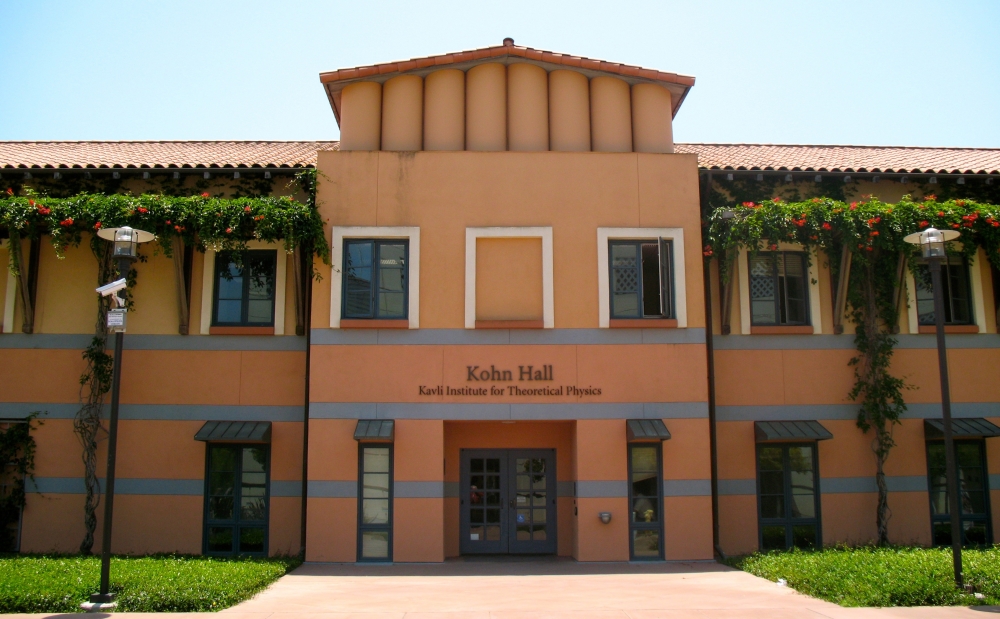
Funding Boosts Quantum Materials Theory Research

At a time when many scientific organizations are challenged by shrinking budgets, the new Emergent Phenomena in Quantum Systems (EPiQS) initiative will help scientists understand quantum materials in new ways and pave the way for potentially world-changing technological applications.
EPiQS, a program of the Gordon and Betty Moore Foundation, has recently awarded $1.5 million over five years to UC Santa Barbara’s Kavli Institute for Theoretical Physics (KITP) to establish the Moore Postdoctoral Theory Scholars Program. These scholars will have appointments of up to three years at KITP.
“The award will enable us to competitively attract the best scholars in the field who find the prospect of being named a Moore Postdoctoral Fellow — especially here at the Kavli Institute for Theoretical Physics, which is already one of the preeminent institutions for theoretical physics in the world — to be doubly appealing,” said principle investigator (PI) Leon Balents, a permanent member of the KITP and a professor in the Department of Physics. Matthew Fisher and Cenke Xu, professor and assistant professor of physics, are co-PIs.
In the field of condensed matter physics, quantum materials present largely uncharted ground for study and immense opportunity for discovery. Quantum materials are substances that become endowed with unusual properties — such as superconductivity, forms of magnetism and other electronic qualities — as a result of the quantum physics of their electrons. These phenomena often elude prediction, even when the properties of the individual particles that constitute these materials are well understood.
Now, with advances in theory, nanotechnology and quantum control of matter, fresh opportunities have surfaced for examining emergent properties of quantum materials. “We’re very excited by the prospect of working with the Moore Foundation to advance the study of quantum phenomena and materials,” said Balents. “Receiving this award cements our position as one of the leading institutions in the theory of quantum matter.”
“I am so pleased that the Moore Foundation has decided to make an additional investment at the KITP and UCSB in the area of quantum materials theory research,” said KITP Director Lars Bildsten, also a professor in the Department of Physics. “Our initial grant in interdisciplinary biology has had a remarkable impact across the field and helped establish quantitative biology here at UC Santa Barbara.”
UC Santa Barbara is one of six universities selected to receive EPiQS funding. The others are Harvard University, the Massachusetts Institute of Technology, Stanford University, UC Berkeley and the University of Illinois at Urbana-Champaign.
These programs are designed to maximize scientific productivity and enrich the overall intellectual environment at these institutions. They also enable some of the best new scholars in theory to acquire a breadth of expertise through flexible postdoctoral appointments in which they can pursue their interests and work with multiple faculty members.
“The Gordon and Betty Moore Foundation has been a visionary and generous philanthropic giant in the scientific and environmental world communities,” said Chancellor Henry T. Yang. “At UC Santa Barbara, we cannot adequately express our appreciation for their latest inspirational gift, which comes in addition to their previous generous gifts to KITP and our National Center for Ecological Analysis and Synthesis (NCEAS). The Moore Foundation’s funding of this exciting postdoctoral scholars program in quantum materials theory will allow KITP to continue attracting premier talent to enhance this special area of strength at UC Santa Barbara.”
Established by Intel co-founder Gordon Moore and his wife, Betty, the Moore Foundation seeks to create positive change in the areas of science, environmental conservation and patient care. The foundation’s science initiatives look for opportunities to transform — or even create — entire fields by investing in early-stage research, emerging fields and top research scientists.



